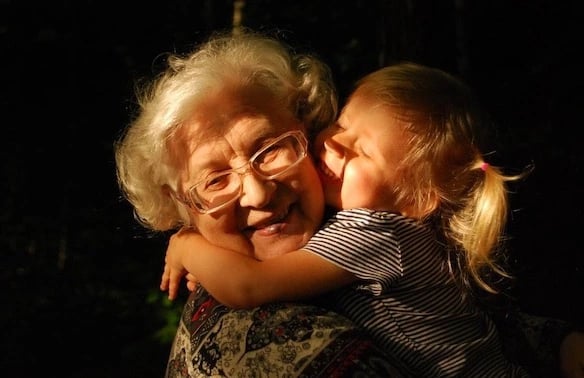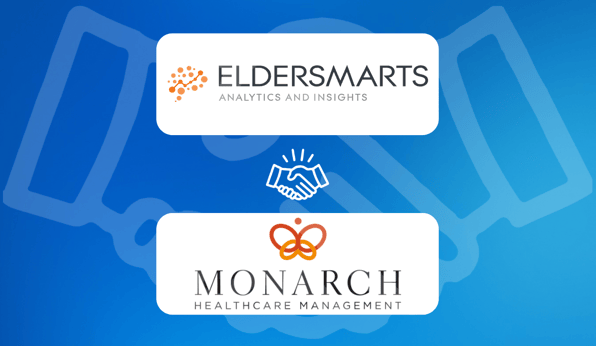Ways To Help Your Residents Stay Connected With Their Families

Recent data shows that more than 810,000 people currently live in senior care and assisted living communities. As Americans age, the demand for high-quality senior living communities will continue to increase. Older adults and their families often select communities based on the services and amenities they offer to residents.
Connection to family, even if family members don’t live nearby, is an important factor in the quality of life for many older adults. Senior living communities need to foster those relationships and offer multiple avenues for residents and their families to stay connected. Creating in-person and remote opportunities for family contact can improve satisfaction for current residents and attract new community members in the future, resident activity management and engagement software is making it easier than ever before to create those opportunities.
The Benefits of Residents Spending Time With Their Families
A rich social life is one of the many benefits for residents in senior living communities. Residents have ample opportunities to get to know their neighbors in the community. Planned activities and communal dining foster friendships and enrich the quality of life for residents. Friendships and a social support system are proven to better mental health, cognitive function, and overall well-being for older adults.
In addition to the company of neighbors, senior living community residents enjoy keeping in frequent contact with family members. There are many benefits of spending time with family.
Support During Early Widowhood
Staying connected to the family can be very important for residents who have recently lost a spouse. Research shows that people gain significant emotional support from family during the first months after the death of a spouse. Family contact is more important than other relationships as people navigate the grieving process.
Improved Physical Health
Social engagement is associated with better physical health for seniors. Spending time with loved ones encourages self-care and physical activity, both of which can be beneficial. In addition, family members can provide valuable observations and health information to community staff. Visiting families can identify changes or emerging needs and ask for care services for their loved ones.
Slowing Age-Related Cognitive Changes
Studies show that social interaction and close ties to family can help older adults maintain strong cognitive abilities. Spending time with relatives is associated with lower rates of cognitive decline. Men, in particular, gain cognitive benefits from quality family time, compared to women, who benefit from friends as well as loved ones.
Sharing Experiences and Memories
Reminiscing can make for a pleasant conversation and deepen emotional bonds for the whole family. It may also improve mental well-being and provide older adults with positive emotional benefits. Connecting with family members who share memories is valuable for seniors who enjoy talking about times past.
Reducing the Effects of Stress
Supportive friends and family help people cope with stress at all points in life. For older adults, mitigating stress can offer important health benefits. Studies show that stress management lowers the risk of inflammation of the heart and arteries. Residents who can rely on strong family relationships for help and support may be able to better manage stress and reduce the risks of stress-related health issues.
Ways To Help Residents Stay Connected
Senior living communities should recognize the importance of family and offer a variety of ways for residents to stay connected with their families. Both in-person and long-distance communication are beneficial to residents and their families.
In-Person Activities
Communities can create opportunities for a family to see their loved ones in person. Having a flexible visitation policy allows family members to plan visits around busy schedules and work obligations.
Dining options that can accommodate guests are an easy way for residents to host a family dinner. Private dining options where residents can arrange a catered meal for a holiday or special event are valuable for residents who have family visiting from out of town.
Planned activities such as movie showings, game nights, or outings are an opportunity for family members to join their loved ones for something fun. In addition, community staff can offer to assist in planning family activities for residents and their loved ones, including arranging for the use of mobility or assistive devices that residents might need when going out.
Virtual Communications
Cell phones, tablets, and computers offer a wealth of communication options when in-person visits aren’t possible. Older adults may enjoy using video conferencing apps like FaceTime or Zoom to connect with family members face-to-face. This can also allow family members to check in on their loved ones in a more comprehensive way, even from a distance.
Communities can encourage the use of communication technology by offering tutorials for residents who aren’t familiar with devices or apps. Classes or on-call support from staff can ensure that residents are able to take advantage of technology.
In addition, communities should provide stable internet connections with enough bandwidth to meet the needs of residents. This is important for communications, and it can be a safety enhancement for the community as well.
Family Portals
Giving families access to a community portal offers them a way to stay connected to residents and help manage administrative and medical services. A portal app such as engage provides residents, their families, and community staff with a universal platform for open communication and information sharing using an intuitive mobile app or desktop access. The engage portal includes functions such as:
- Shared calendars
- Photos and video sharing
- Resident story information to help staff get to know the residents
- Dining service menus
- Communication between residents, family, and community staff
Portals are also an effective tool for community management. Residents can provide direct feedback on activities, and the engage platform provides reports on participation and satisfaction with activities. Engage can track regulatory requirements and help staff ensure that services meet or exceed the relevant standards
Learn More About engage
Adding the engage portal as a service to your residents and their families makes it easy to enhance family engagement. In addition, it allows staff to measure programming and attendance and respond to resident preferences.
To learn how you can use engage to connect your residents, their families, and your workforce in one easy-to-use portal, contact us to schedule a demo today!




